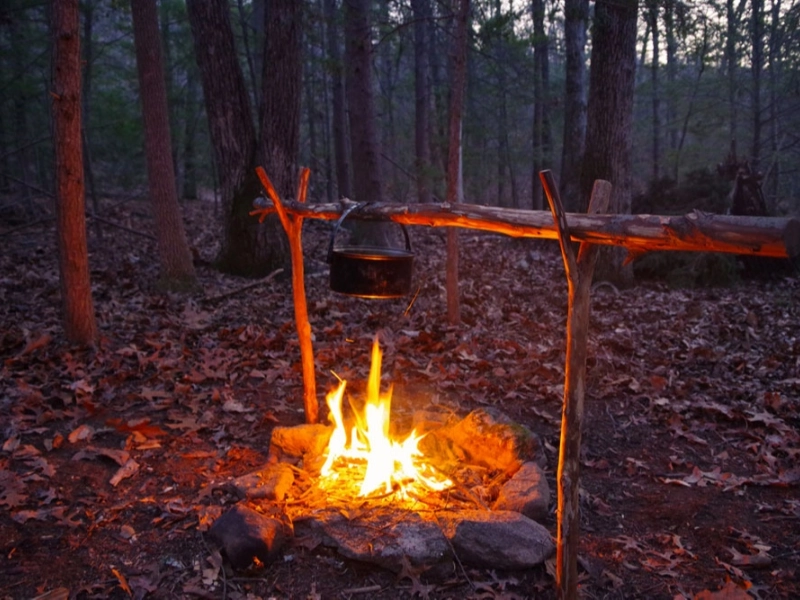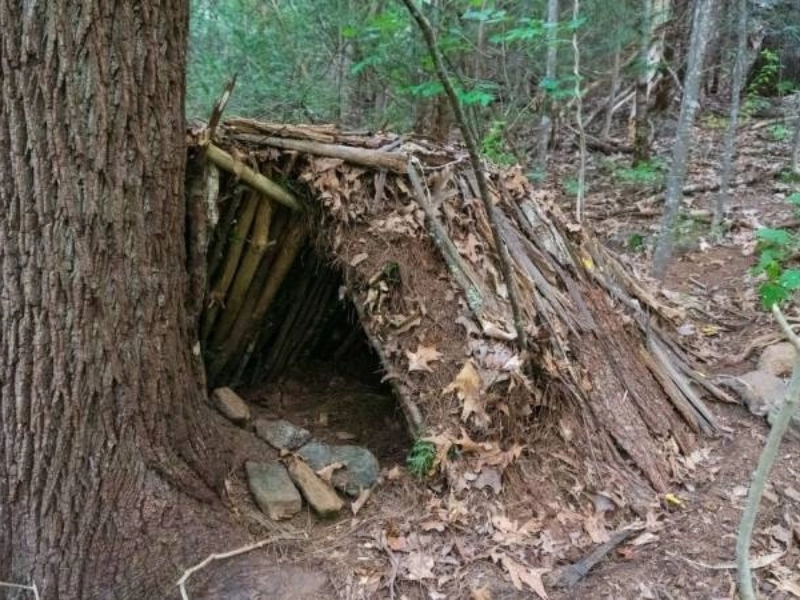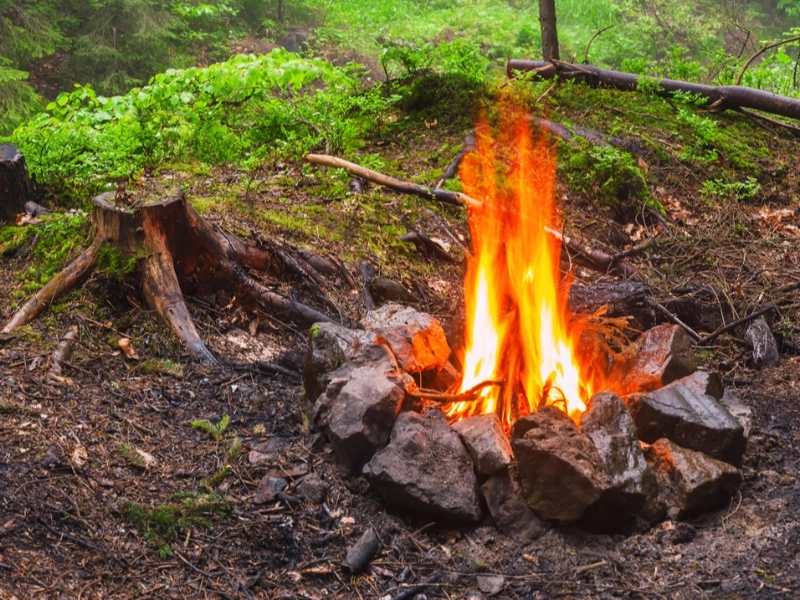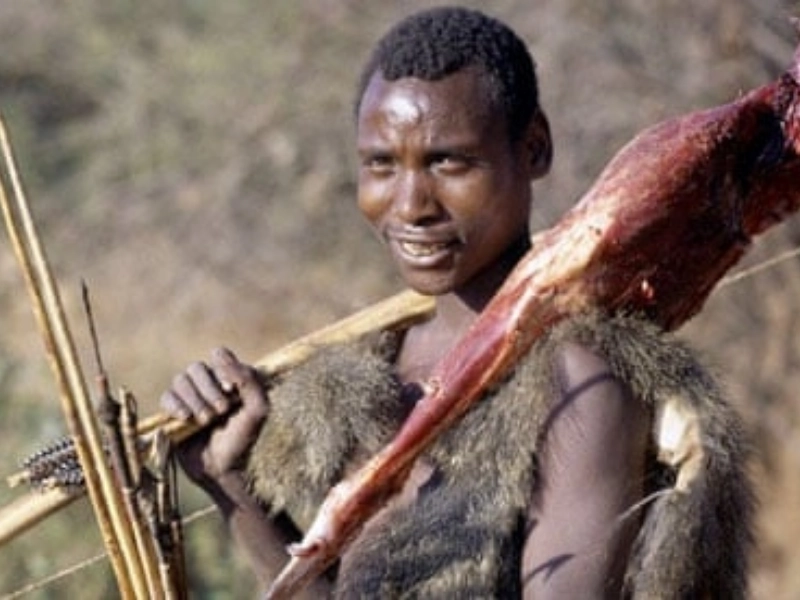It's important to maintain composure when facing survival. This entails avoiding frenzied responses that elevate your heart rate and impair your ability to think rationally. It's also critical to understand how to light a fire. This is particularly valid in the event that you lack access to flint.
 In survival situations, communication skills are critical. In a life-or-death crisis, being able to communicate your location and status through signaling with a mirror, whistle, or clap can make the difference between survival and death.
Being able to provide basic first aid is also crucial. In the outdoors, sprained ankles, burns, and scrapes are common ailments, and prompt medical attention can make all the difference.
And last, it's crucial to be able to evaluate a situation while maintaining composure. The brain's amygdala can set off a fight-or-flight reaction in a survival situation, which might cause needless risks that could be fatal. Your capacity to maintain composure under duress will facilitate clear thinking and the creation of a strategy.
In survival situations, communication skills are critical. In a life-or-death crisis, being able to communicate your location and status through signaling with a mirror, whistle, or clap can make the difference between survival and death.
Being able to provide basic first aid is also crucial. In the outdoors, sprained ankles, burns, and scrapes are common ailments, and prompt medical attention can make all the difference.
And last, it's crucial to be able to evaluate a situation while maintaining composure. The brain's amygdala can set off a fight-or-flight reaction in a survival situation, which might cause needless risks that could be fatal. Your capacity to maintain composure under duress will facilitate clear thinking and the creation of a strategy.
 One of the most crucial survival abilities is the capacity to construct a shelter. A well-built shelter will shield you from the weather and help you live if you're ever stranded in the woods.
The issue is that you can't merely construct a lean-to and hope to live. Selecting the ideal location for your shelter and building it as quickly as you can are essential.
Level land, or at least a slope that allows you to dig the side of your shelter that faces downward into the ground and divert rainwater away from it, is the ideal location for a survival shelter. It's crucial to take into account how you are in relation to bodies of water. Staying too close could allow water to leak into your shelter and result in hypothermia.
One of the most crucial survival abilities is the capacity to construct a shelter. A well-built shelter will shield you from the weather and help you live if you're ever stranded in the woods.
The issue is that you can't merely construct a lean-to and hope to live. Selecting the ideal location for your shelter and building it as quickly as you can are essential.
Level land, or at least a slope that allows you to dig the side of your shelter that faces downward into the ground and divert rainwater away from it, is the ideal location for a survival shelter. It's crucial to take into account how you are in relation to bodies of water. Staying too close could allow water to leak into your shelter and result in hypothermia.
 One of the most crucial survival skills is being able to kindle a fire. You can use it to signal for help, cook food, remain warm, and fend off predators. You can succumb to pneumonia or hypothermia in the absence of a fire.
You will need fuel (such as twigs and small branches), tinder (a fine, dry material that readily bursts into flame), and an ignition source to start a fire. Sparks can be produced with flint and steel, but other frequent tools include magnifying glasses, camera lenses, and eyeglasses.
Hold the flint near the tinder nest, which you should shape into the shape of a softball, in order to start a fire. Gently guide the flint's sparks towards your tinder, tending to it until it ignites.
One of the most crucial survival skills is being able to kindle a fire. You can use it to signal for help, cook food, remain warm, and fend off predators. You can succumb to pneumonia or hypothermia in the absence of a fire.
You will need fuel (such as twigs and small branches), tinder (a fine, dry material that readily bursts into flame), and an ignition source to start a fire. Sparks can be produced with flint and steel, but other frequent tools include magnifying glasses, camera lenses, and eyeglasses.
Hold the flint near the tinder nest, which you should shape into the shape of a softball, in order to start a fire. Gently guide the flint's sparks towards your tinder, tending to it until it ignites.
 Because humans require food to survive, it's critical to have a method for obtaining flesh. Given its high iron and protein content, wild game would be the ideal choice in a survival emergency.
In one study, researchers discovered that men's hunting reputation among hunter-gatherers is highly predicted by upper-body strength. This implies that hunting has remained an important aspect of human evolution.
Planning for a crisis isn't always feasible, but being prepared with the correct survival skills can be helpful. In a wilderness situation where survival is critical, skills such as fire starting, plant identification, and basic first aid can be crucial. However, survival demands more than simply physical toughness; it also calls for mental toughness. Being composed under pressure can give you more time to think things through.
Because humans require food to survive, it's critical to have a method for obtaining flesh. Given its high iron and protein content, wild game would be the ideal choice in a survival emergency.
In one study, researchers discovered that men's hunting reputation among hunter-gatherers is highly predicted by upper-body strength. This implies that hunting has remained an important aspect of human evolution.
Planning for a crisis isn't always feasible, but being prepared with the correct survival skills can be helpful. In a wilderness situation where survival is critical, skills such as fire starting, plant identification, and basic first aid can be crucial. However, survival demands more than simply physical toughness; it also calls for mental toughness. Being composed under pressure can give you more time to think things through.
 Knowing the essential skills for wilderness survival can mean the difference between life and death. To be prepared for any challenge that may arise in the wilderness, every man should practice these skills, which include building shelter, making fire, and bandaging wounds.
The capacity to construct a shelter is the most crucial skill for wilderness survival. This ability sets wilderness survival specialists like Les Stroud (of Discovery Channel's "Survivorman") apart from people who perish after becoming lost in the outdoors. A survival shelter offers food, warmth, safety, and hope for an expedient escape. It muffles noise, so it's also a smart strategy to keep predators out. The main drawback is that it's challenging to execute in colder areas where the air's dampness makes starting a fire all but impossible.
Knowing the essential skills for wilderness survival can mean the difference between life and death. To be prepared for any challenge that may arise in the wilderness, every man should practice these skills, which include building shelter, making fire, and bandaging wounds.
The capacity to construct a shelter is the most crucial skill for wilderness survival. This ability sets wilderness survival specialists like Les Stroud (of Discovery Channel's "Survivorman") apart from people who perish after becoming lost in the outdoors. A survival shelter offers food, warmth, safety, and hope for an expedient escape. It muffles noise, so it's also a smart strategy to keep predators out. The main drawback is that it's challenging to execute in colder areas where the air's dampness makes starting a fire all but impossible.